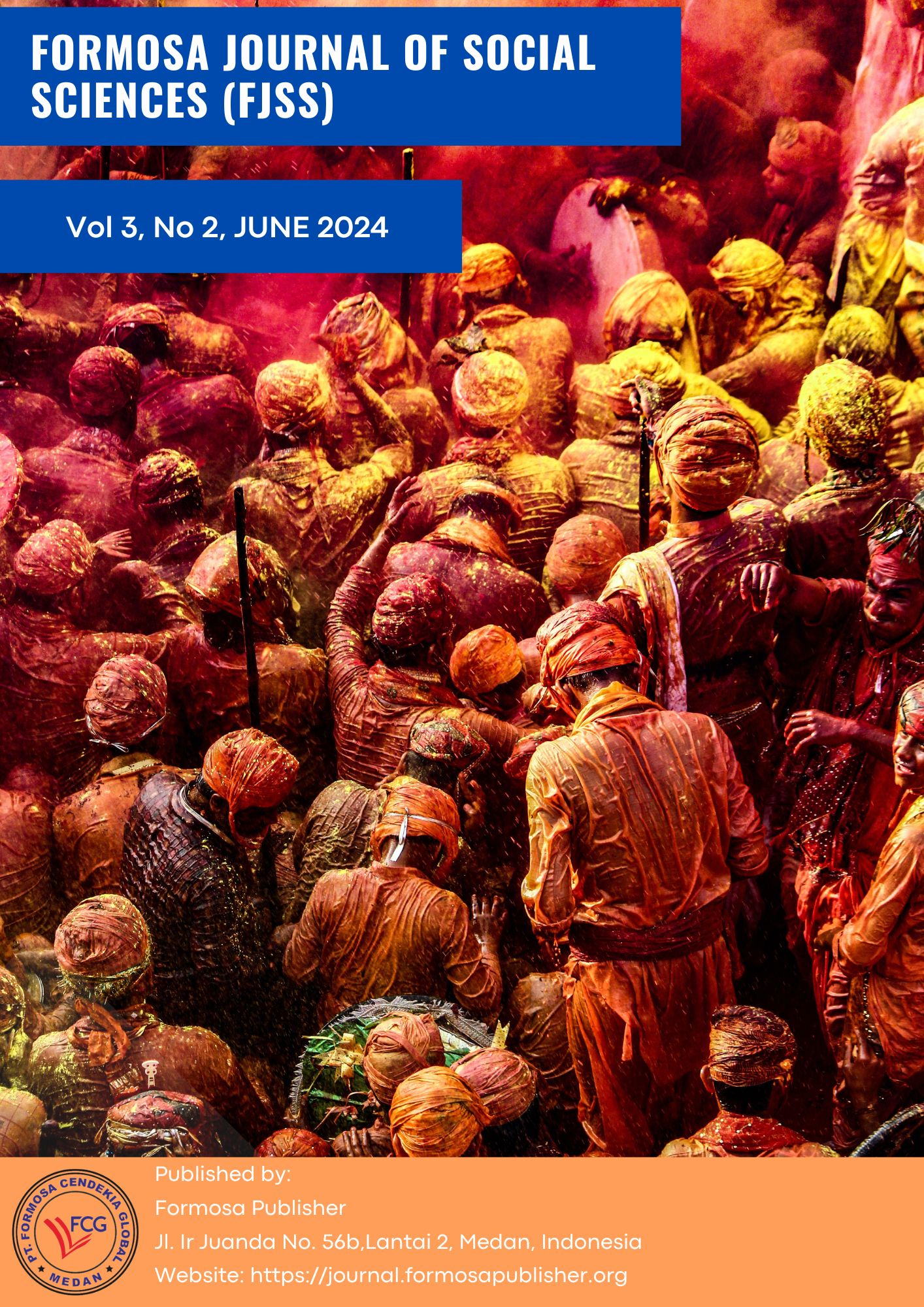Fraud Prevention Strategy at PT. PLN (Persero) Lhokseumawe Customer Service Unit
DOI:
https://doi.org/10.55927/fjss.v3i2.10721Keywords:
Fraud Prevention Strategy, Internal Control, System Program Anti-Bribery ManagementAbstract
This research describes the implementation of fraud prevention strategies through internal control at PT. PLN (Persero) Lhokseumawe Customer Service Implementation Unit, with a focus on anti-bribery management system programs. The methods used include Gap Analysis to measure readiness to implement an anti-bribery management system as well as SWOT analysis combined with Strategic Factor Analysis to formulate implementation strategies in the short, medium and long term. The research results show that although PT. PLN (Persero) Lhokseumawe Customer Service Implementation Unit is ready to implement an anti-bribery management system, there is still a need for further development. Some of the main findings are that not all employees have received training regarding the anti-bribery management system and there has been no risk assessment of bribery. To overcome this, the research recommends several implementation strategies, namely Anti-Bribery Management System Training, Anti-Gratification Socialization, Bribery Risk Assessment, Activity Budgeting and Policy/Guideline Making. This strategy is expected to help PT. PLN (Persero) Lhokseumawe Customer Service Implementation Unit in strengthening good governance and reducing the risk of fraud through implementing an effective and sustainable anti-bribery management system
Downloads
References
ACFE (2016). Survai Fraud Indonesia, Association of Certified fraud Examiners.
Aditya, F., & Nurbaiti, A. (2020). Pengaruh audit internal dan pengendalian internal terhadap pencegahan kecurangan (studi kasus pada PT. PLN 9persero) bagian wilayah sumatera Barat). E-Proceeding of Management, 7(2), 2710–2722.
Agung Priyanto, Titik Aryati (2016). Analisi pengaruh Budaya Organisasi dan Sistem Pengendalian internal Terhadap Pendeteksian dan Pencegahan Fraud, Jurnal Informasi, Perpajakan, akuntansi dan Keuangan Publik 11(2), 89-104
AICPA and ACFE (2008), Managing the Business Risk of Fraud, a Practical Guide
Akbar, B., & Djazuli, A. (2015). Audit keuangan dan kesejahteraan rakyat studi pada Kabupaten Badung, Tabanan dan Kota Denpasar Tahun 2013. Jurnal Tata Kelola & Akuntabilitas Keuangan Negara, 1(1), 1-19.
Ardi, A., Indrawati, N., & Kamaliah. (2019). Pengaruh Konflik Kepentingan dan Tingkat Kesulitan Keuangan terhadap Konservatisme Akuntansi dengan Risiko Ligitasi sebagai Variabel Pemoderasi. Ekonomi, 27(2), 160–171. http://je.ejournal.unri.ac.id/
Association of Certified Fraud Examiners Indonesia. (2019). Survei Fraud Indonesia 2019. Indonesia Chapter #111, 53(9), 1–76. https://acfe-indonesia.or.id/survei-fraud-indonesia/
Bologna, G. Jack dan Robert, 2000. Fraud Auditing and forensec Accounting, New Tools and Techniques, edisi kedua
Bukhori, I. (2018). Implementasi Program “PLN Berintegritas” Di PT. PLN (Persero) Area Majalaya. Prosiding FRIMA (Festival Riset Ilmiah Manajemen Dan Akuntansi), 1, 9–18. https://doi.org/10.55916/frima.v0i1.168
Cressey,D. (1953). Other people’s money, dalam: “The Internal Auditor as Fraud buster, Hillison,
Direktori Kompetensi PT PLN (Persero).
Eko Sudarmanto (2020). Manajermen Risiko : Deteksi dini pencegahan Fraud, jurnal Ilmu Manajemen, 9(2), 107-121
Eko Sudarmanto. (2020). Manajemen Risiko : Deteksi Dini Upaya Pencegahan Fraud. Jurnal Ilmu Manajemen, 9(2), 107–121.
Fauzan, I. A., Gunawan, H., & Purnamasari, P. (2015). Prosiding Akuntansi ISSN: 2460-6561. Proseding Akuntansi, 1(40), 21–26.
Gagola, Kristo. 2011. “Analisis Faktor Risiko yang Mempengaruhi Kecenderungan Kecurangan Pelaporan Keuangan Perusahaan Publik di Indonesia”. Tesis Tidak Dipublikasikan,
Gbegi, D. O., & Adebisi, J. . (2015). ANALYSIS OF FRAUD DETECTION AND PREVENTION STRATEGIES IN THE NIGERIAN PUBLIC SECTOR Lecturer Department of Accounting and Finance Federal University of Agriculture , Makurdi , Nigeria . Adebisi , J . F . Ph . D Director Gener. Journal of Good Governance and Sustainable Development in Africa(JGGSDA), 2(4), 109–128.
Purba, R. B. (2023). Teori Akuntansi: Sebuah Pemahaman untuk Mendukung Penelitian di Bidang Akuntansi. Merdeka Kreasi Group.
Purba, R. B., & Umar, H. (2021). Kualitas Audit & Deteksi Korupsi. Merdeka Kreasi Group.
Triwahyuni, T., & Prasetyo, A. (2021). Pencegahan Fraud pada Mantri PT Bank Rakyat Indonesia (PERSERO)Tbk Kantor Cabang Gombong: Peran Pengendalian Internal, Kesesuaian Kompensasi, dan Budaya Etis Organisasi. Accounting and Management Journal, 5(2), 44–55. https://doi.org/10.33086/amj.v5i2.2272
Umar, H., Purba, R. B., & Nasution, M. D. T. P. (2021). Metode Penelitian Ilmiah (Vol. 1). Penerbit Universitas Trisakti.
Waluyo, B. (2014). Optimalisasi Pemberantasan Korupsi di Indonesia. Jurnal Yuridis, 1(2), 169–182.
Wijaya, A., Fasa, H., & Sani, S. Y. (2020). Sistem Manajemen Anti-Penyuapan ISO 37001:2016 dan Pencegahan Praktik Korupsi di Sektor Pelayanan Publik. INTEGRITAS: Jurnal Antikorupsi, 6(2), 187–208. https://doi.org/10.32697/integritas.v6i2.684
Wilhelmus, O. R. (2018). Korupsi: Teori, Faktor Penyebab, Dampak, Dan Penanganannya. JPAK: Jurnal Pendidikan Agama Katolik, 17(9), 26–42. https://doi.org/10.34150/jpak.v17i9.44
William. Et. Al. 1999. Managerial Auditing Journal, MCB University Press, 14/7:351-362.
Downloads
Published
How to Cite
Issue
Section
License
Copyright (c) 2024 Yandri Doni, Rahima Br Purba

This work is licensed under a Creative Commons Attribution 4.0 International License.








.png)

















